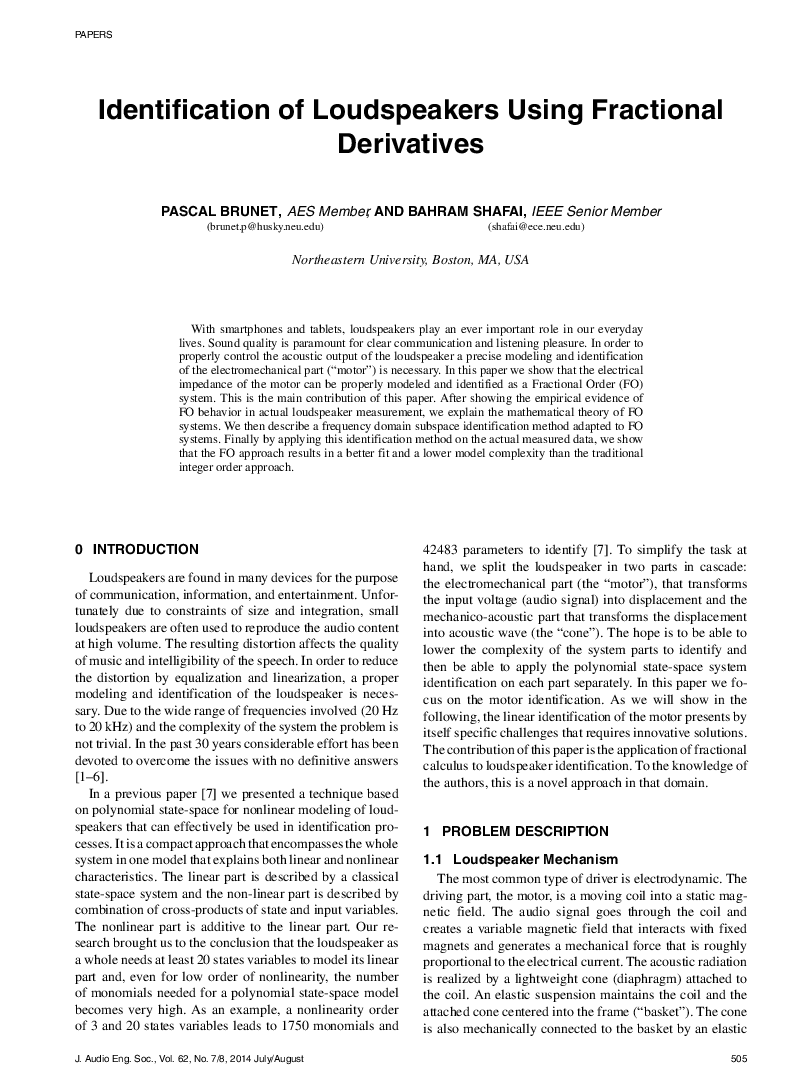Home / Publications / E-library page
You are currently logged in as an
Institutional Subscriber.
If you would like to logout,
please click on the button below.
Home / Publications / E-library page
Only AES members and Institutional Journal Subscribers can download
When small loudspeakers reproduce audio at high volumes, the resulting degradation requires the use of equalization and linearization to attain quality. This requires accurate modeling and identification of the loudspeaker. As described previously, a technique based on polynomial state-space representation can be used in the loudspeaker identification process because it encompasses both the linear and nonlinear characteristics in one compact model. The nonlinear part, which is added to the linear part, is described by combination of cross-products of state and input variables. In order to reduce the complexity of this task, the loudspeaker model was split into two cascading parts: the electromechanical motor that transforms the input audio into displacement and the mechanico-acoustic component that transforms the displacement into an acoustic wave. In this paper, the authors show that the electrical impedance of the motor can be properly modeled and identified as a Fractional Order (FO) system. Experimental results demonstrate that the FO approach results in both a lower fitting error and a smaller order compared to the traditional integer order approach.
Author (s): Brunet, Pascal; Shafai, Bahram
Affiliation:
Northeastern University, Boston, MA, USA
(See document for exact affiliation information.)
Publication Date:
2014-07-06
Import into BibTeX
Permalink: https://aes2.org/publications/elibrary-page/?id=17342
(605KB)
Click to purchase paper as a non-member or login as an AES member. If your company or school subscribes to the E-Library then switch to the institutional version. If you are not an AES member Join the AES. If you need to check your member status, login to the Member Portal.

Brunet, Pascal; Shafai, Bahram; 2014; Identification of Loudspeakers Using Fractional Derivatives [PDF]; Northeastern University, Boston, MA, USA; Paper ; Available from: https://aes2.org/publications/elibrary-page/?id=17342
Brunet, Pascal; Shafai, Bahram; Identification of Loudspeakers Using Fractional Derivatives [PDF]; Northeastern University, Boston, MA, USA; Paper ; 2014 Available: https://aes2.org/publications/elibrary-page/?id=17342